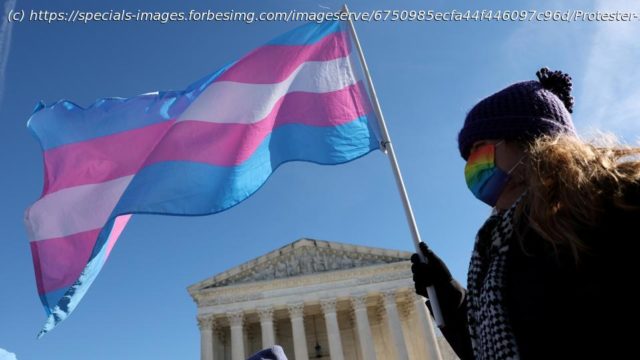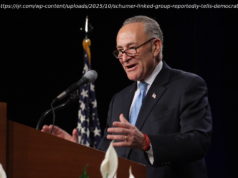The cases could result in a landmark ruling over transgender rights.
Key Facts
The court announced it will hear two cases next term involving state-level bans on transgender women in sports: West Virginia v. B.P.J. and Little v. Hecox, which involve bans in West Virginia and Idaho, respectively.
Both cases ask the court to decide whether laws that restrict participation in women’s sports based on biological sex violate the 14th Amendment’s Equal Protection Clause.
West Virginia’s case also asks whether states can “consistently designat[e] girls’ and boys’ sports teams based on biological sex” under Title IX of the Education Amendments of 1972, which prohibits sex-based discrimination in schools.
Officials in Idaho and West Virginia asked the high court to take up the cases after lower courts blocked the state laws as they applied to the transgender athletes who brought the lawsuits, allowing those specific plaintiffs to participate in women’s sports.
The Supreme Court did not offer any reasoning Thursday for its decision to take up the cases, or any note suggesting if any justices dissented from the decision, and the court did not take up a third case regarding Arizona’s ban on transgender women in sports.Crucial Quote
“We believe the lower courts were right to block these discriminatory laws, and we will continue to defend the freedom of all kids to play,” Joshua Block, Senior Counsel for the ACLU’s LGBTQ & HIV Project, said in a statement Thursday about the court’s decision to take up the two cases. The ACLU is representing plaintiffs in the cases, along with Lambda Legal.






